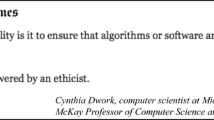Abstract
Insurance claim fraud costs insurance companies, policymakers, and taxpayers billions of dollars every year and has been described as the second largest white collar crime. The most common insurance fraud activity and one that contributes a significant portion of dollar losses is the practice of padding claim amounts in the event of a loss. One of the largest issues insurance companies face is that policyholders often do not perceive insurance claim padding as an unethical behavior. However, very little research has examined the factors that contribute to such perceptions. Considering how consumers often attempt to justify fraudulent behavior from a fairness perspective, the present work examines how the amount of the deductible in an insurance claim situation can influence feelings of fairness and ethicality. The results of an experimental study show that higher deductible amounts result in stronger perceptions that insurance claim padding is fair to the insurance company, weaker perceptions that the behavior is unethical, and higher proposed claim award amounts. The study also shows, however, that the deductible amount effects are attenuated for consumers who display higher ethical standards as reflected by their scores on the consumer ethics scale. Implications are discussed with respect to the insurance industry, deviant consumer behavior, and general business ethics theory.
Similar content being viewed by others
References
Artis, M., Ayuso, M., & Guillen, M. (2002). Detection of Automobile Insurance Fraud with Discrete Choice Models and Misclassified Claims. The Journal of Risk and Insurance, 69(September), 325–340. doi:10.1111/1539-6975.00022
Barnett, T., Bass, K., & Brown, G. (1994). Ethical Ideology and Ethical Judgment Regarding Ethical Issues in Business. Journal of Business Ethics, 13(June), 469–480. doi:10.1007/BF00881456
Brinkmann, J. (2005). Understanding Insurance Customer Dishonesty: Outline of a Situational Approach. Journal of Business Ethics, 61(October), 183–197. doi:10.1007/s10551-005-0278-1
Brinkmann, J., & Lentz, P. (2006). Understanding Insurance Customer Dishonesty: Outline of a Moral-Sociological Approach. Journal of Business Ethics, 66(June), 177–195. doi:10.1007/s10551-005-5575-1
CAIF. 1997, Four Faces: Why Some Americans Do – and Do Not – Tolerate Insurance Fraud. Washington, DC: Coalition Against Insurance Fraud
CAIF: 2003, ‹One-Fourth of Americans Say It’s Acceptable to Defraud Insurance’, Coalition Against Insurance Fraud, http://www.insurancefraud.org/study021303.htm. Accessed 12 Mar 2007
CAIF: 2007, ‹Insurance Fraud: The Crime You Pay for’, Coalition Against Insurance Fraud, http://www.insurancefraud.org/fraud_backgrounder.htm. Accessed 12 Mar 2007
Carris, R., & Colin, M.A. (1997). Insurance Fraud and the Industry Response. CPCU Journal, 50(Summer), 92–103
Chiou, J.-S., Chien-yi, H., & Hsin-hui, L. (2005). The Antecedents of Music Piracy Attitudes and Intentions. Journal of Business Ethics, 57(March), 161–174. doi:10.1007/s10551-004-5263-6
Churchill, G.A., Jr. 1991, Marketing Research: Methodological Foundations, 5th Edition (Dryden Press, Hinsdale, IL)
Coolidge, C.: 2006, ‹Dirty Rotten Scoundrels: Two Ex-convicts Tried to Pull a Fast One on State Farm Insurance. Neither Made Out Well’, Forbes Online, October 16, http://members.forbes.com/forbes/2006/1016/116.html. Accessed 12 Mar 2007
Dean, D.H. (2004). Perceptions of the Ethicality of Consumer Insurance Claim Fraud. Journal of Business Ethics, 54(September), 67–79. doi:10.1023/B:BUSI.0000043493.79787.e6
Dionne, G. 2000, The Empirical Measure of Information Problems with Emphasis on Insurance Fraud. In Georges Dionne (Ed.) Handbook of Insurance, Vol. 22. Boston, MA: Kluwer Academic Publishers, 395–419
Dionne, G., & Gagné, R. (2001). Deductible Contracts Against Fraudulent Claims: Evidence from Automobile Insurance. The Review of Economics and Statistics, 83(2), 290–301. doi:10.1162/00346530151143824
Fukukawa, K. (2002). Developing a Framework for Ethically Questionable Behavior. Journal of Business Ethics, 41(November), 99–119. doi:10.1023/A:1021354323586
Fukukawa, K., Ennew, C., & Diacon, S. 2007, An Eye for an Eye: Investigating the Impact of Consumer Perception of Corporate Unfairness on Aberrant Consumer Behavior. In P. Flanagan, P. Primeaux, and W. Ferguson (eds.), Research in Ethical Issues in Organizations: Insurance Ethics for a More Ethical World, 7. Elsevier, New York, 187–221
Gustafson, A. (2000). Making Sense of Postmodern Business Ethics. Business Ethics Quarterly, 10(3), 645–658. doi:10.2307/3857896
Insurance Research Council: 2006, ‹IRC Study Finds Many Policyholders do not Understand How Choosing Higher Insurance Deductibles can Lower Premium Costs’, January 23, http://www.ircweb.org/News/20060123.pdf. Accessed 12 Mar 2007
Li, C.-S., Liu, C.-C., & Yeh, J.-H. (2007). The Incentive Effects of Increasing Per-Claim Deductible Contracts in Automobile Insurance. The Journal of Risk and Insurance, 74(2), 441–459. doi:10.1111/j.1539-6975.2007.00220.x
Limayem, M., Khalifa, M., & Chin, W.W. (2004). Factors Motivating Software Piracy: A Longitudinal Study. IEEE Transactions on Engineering Management, 51(November), 414–425. doi:10.1109/TEM.2004.835087
Lupfer, M.B., Weeks, K.P., Doan, K.A., & Houston, D.A. (2000). Folk Conceptions of Fairness and Unfairness. European Journal of Social Psychology, 30, 405–428. doi:10.1002/(SICI)1099-0992(200005/06)30:3<405::AID-EJSP997>3.0.CO;2-U
Miyazaki, A.D., & Taylor, K.A. (2007). Researcher Interaction Biases and Business Ethics Research: Respondent Reactions to Researcher Characteristics. Journal of Business Ethics, 81(September), 779–795
Mowen, J.C., & Mowen, M.M. (1991). Time and Outcome Valuation: Implications for Marketing Decision Making. Journal of Marketing, 55(October), 54–62. doi:10.2307/1251956
Muncy, J.A., & Vitell, S.J. (1992). Consumer Ethics: An Investigation of the Ethical Beliefs of the Final Consumer. Journal of Business Research, 24(June), 297–311. doi:10.1016/0148-2963(92)90036-B
Schiller, J. (2006). The Impact of Insurance Fraud Detection Systems. The Journal of Risk and Insurance, 73(September), 421–438. doi:10.1111/j.1539-6975.2006.00182.x
Smith, B.D. (2000). Insurance Fraud Should Be Everyone’s Concern. CPCU Journal, 53(Fall), 137–138
Tennyson, S. (1997). Economic Institutions and Individual Ethics: A Study of Consumer Attitudes Toward Insurance Fraud. Journal of Economic Behavior & Organization, 32, 247–265. doi:10.1016/S0167-2681(96)00904-3
Tennyson, S. (2002). Insurance Experience and Consumers’ Attitudes Toward Insurance Fraud. Journal of Insurance Regulation, 21(2), 35–55
Todd, J.D., Welch, S.T., Welch, O.J., & Holmes, S.A. (1999). Insurer vs. Insurance Fraud: Characteristics and Detection. Journal of Insurance Issues, 22(Fall), 103–124
Author information
Authors and Affiliations
Corresponding author
Rights and permissions
About this article
Cite this article
Miyazaki, A.D. Perceived Ethicality of Insurance Claim Fraud: Do Higher Deductibles Lead to Lower Ethical Standards?. J Bus Ethics 87, 589–598 (2009). https://doi.org/10.1007/s10551-008-9960-4
Received:
Accepted:
Published:
Issue Date:
DOI: https://doi.org/10.1007/s10551-008-9960-4




